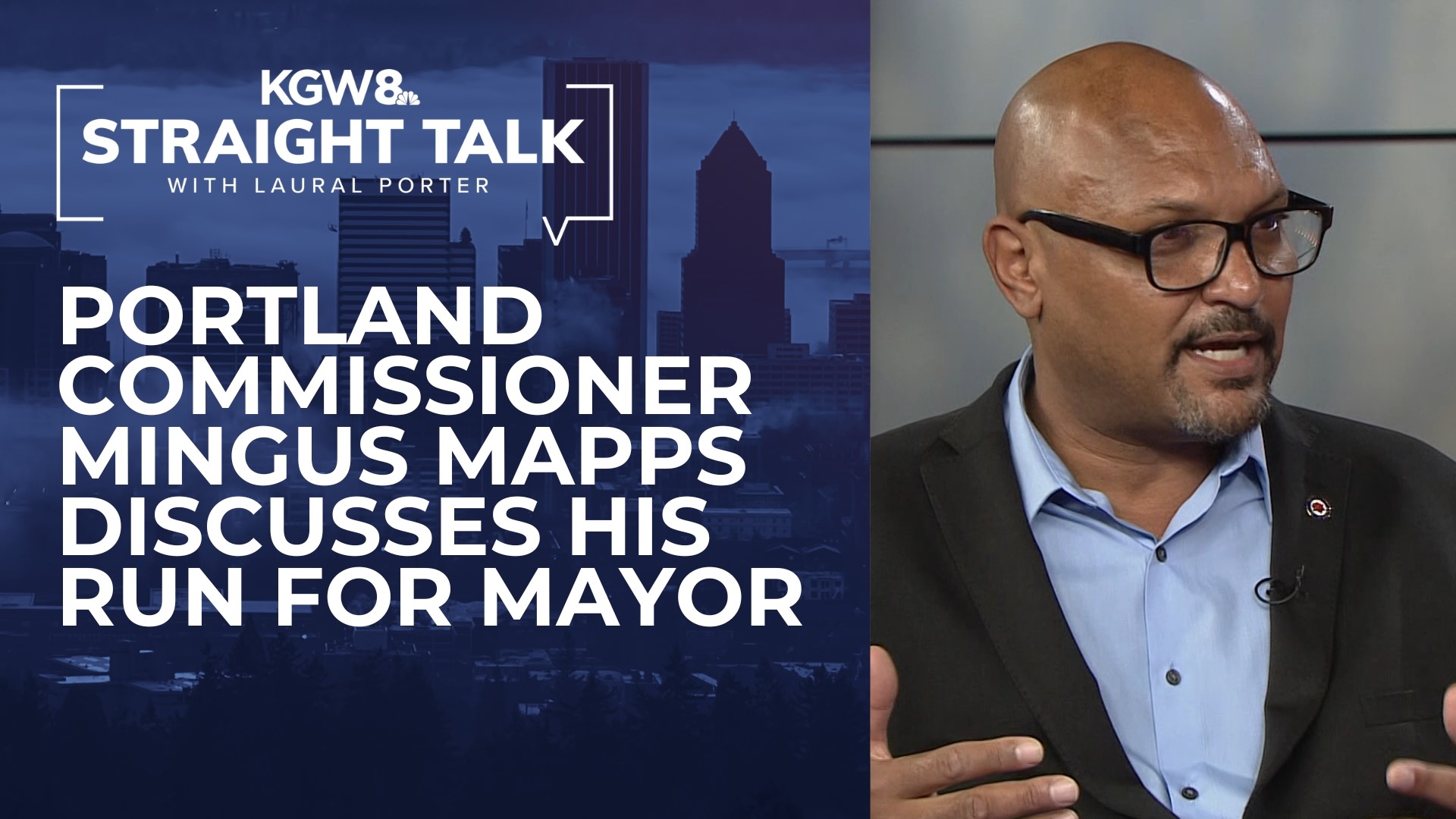PORTLAND, Ore. — Portland's 2024 election is likely to be the busiest in recent memory. The city council is expanding from four commissioners to 12 councilors, and every one of those seats will be up for grabs at the same time. The mayor's office will be on the ballot as well, and whoever wins will become the first mayor under Portland's new system of government starting in January 2025.
The first person to throw their hat into the ring for the mayor's race is current city commissioner Mingus Mapps, who was elected in 2020. Mapps was an early advocate for charter reform, but became a vocal critic of the final package of changes that was ultimately sent to voters last year. Nonetheless, he says the new mayor's role is going to be critical to addressing Portland's challenges, and he wants to be part of that change.
Mapps holds a bachelor's degree in political science from Reed College and a PhD from Cornell University, and was a political science professor at Brandeis University, Bowdoin College and Portland State University. He currently heads up Portland's Water Bureau, Bureau of Environmental Services and Bureau of Transportation as a city commissioner. He's a single dad raising two teenage sons, Langston and Coltrane. If elected, he would be Portland's first Black mayor.
Mapps was a guest on this week's episode of Straight Talk to discuss his reasons for running, his hopes and concerns for the new system of government and his plans to help Portland meet its many challenges. He also stuck around for a bonus episode to talk about the city's efforts to combat climate change. The full episode can be viewed in the player above.
WATCH: Bonus episode: Mingus Mapps
The charter reform question
When asked about his change of heart on charter reform, Mapps said he's always been a charter reform advocate, but was skeptical about some parts of the final package that emerged from the drafting process — including the use of district-based ranked-choice voting to elect councilors. Mapps said he liked the idea of districts, but worried that the ranked-choice system could be overly complicated and lead to unintuitive outcomes.
He's also been critical of the way the mayor's role will be structured in the new government. Under the current system, the mayor essentially functions as a fifth commissioner, holding a seat on the city council and overseeing bureaus. The new system will remove the mayor from the council and give them a purely administrative role, overseeing a city manager in charge of the city's day-to-day operations. But unlike in some other cities with similar systems, the mayor won't have the power to veto city council decisions.
"That's something I would have done a little bit different if my argument had won the day," Mapps said.
But the mayor will still play a critical role, he added, both through the hiring of the city manager and chief of police as well as drafting the first budget proposed to the council during each budget cycle. He said he also thinks the mayor will be an important part of establishing a new culture in the city's leadership.
"You know, there's a bunch of stuff that you can put on paper, but there are informal norms that kind of shape how city hall works," he said. "Essentially, our next mayor is going to be a lot like George Washington, who kind of helped establish the character of the country. Our next mayor is going to help establish the character of Portland 2.0."
The need for new policies
Turning to the kinds of policies he would pursue as mayor, Mapps said he thinks there's a "clear consensus" that Portland's houselessness, public safety and economic recovery policies have all failed, based on the amounts of money spent and the worsening numbers of homeless residents and homicides in recent years.
"For the first time in 40 years, I'll tell you, the number of people who are living in Portland has actually decreased," he said. "People are fleeing Portland. That combination of high crimes, high homelessness and people literally fleeting the city is a sign of a city heading in the wrong direction."
Reflecting on his own two-and-a-half years in office as a city commissioner, Mapps said he felt that he's helped the city begin to turn a corner, with homicide rates starting to go down and the city taking a "much more rational" approach to houselessness. He also talked about the council's efforts to grow the police department, which he characterized as a shift from a mentality of reducing police funding that prevailed when he was running for office.
"If we stay on track, we'll actually have a police department that is actually adequate to meet the needs of the city," he said. "And at the same time, I haven't forgotten the facts — which I can never forget, as a Black man and a Black father — that it's important to have a police department which is equitable and fair and transparent and just to all people, regardless of the color of their skin."
He also addressed the daytime camping ban that the city council implemented earlier this year, stating that it was working "not well enough" and reiterating calls to reexamine the terms of Portland's participation in the Joint Office of Homeless Services with Multnomah County.
"Right now, our fundamental contract basically says the city gives the county money, the county controls everything there," he said. "We need much more clarity about how this relationship works and what services we get in exchange for the tens of millions of dollars we allocate to the county for houseless services."
Straight Talk airs Friday at 7pm, Saturday and Sunday at 6:30pm. Straight Talk is also available as a podcast.

